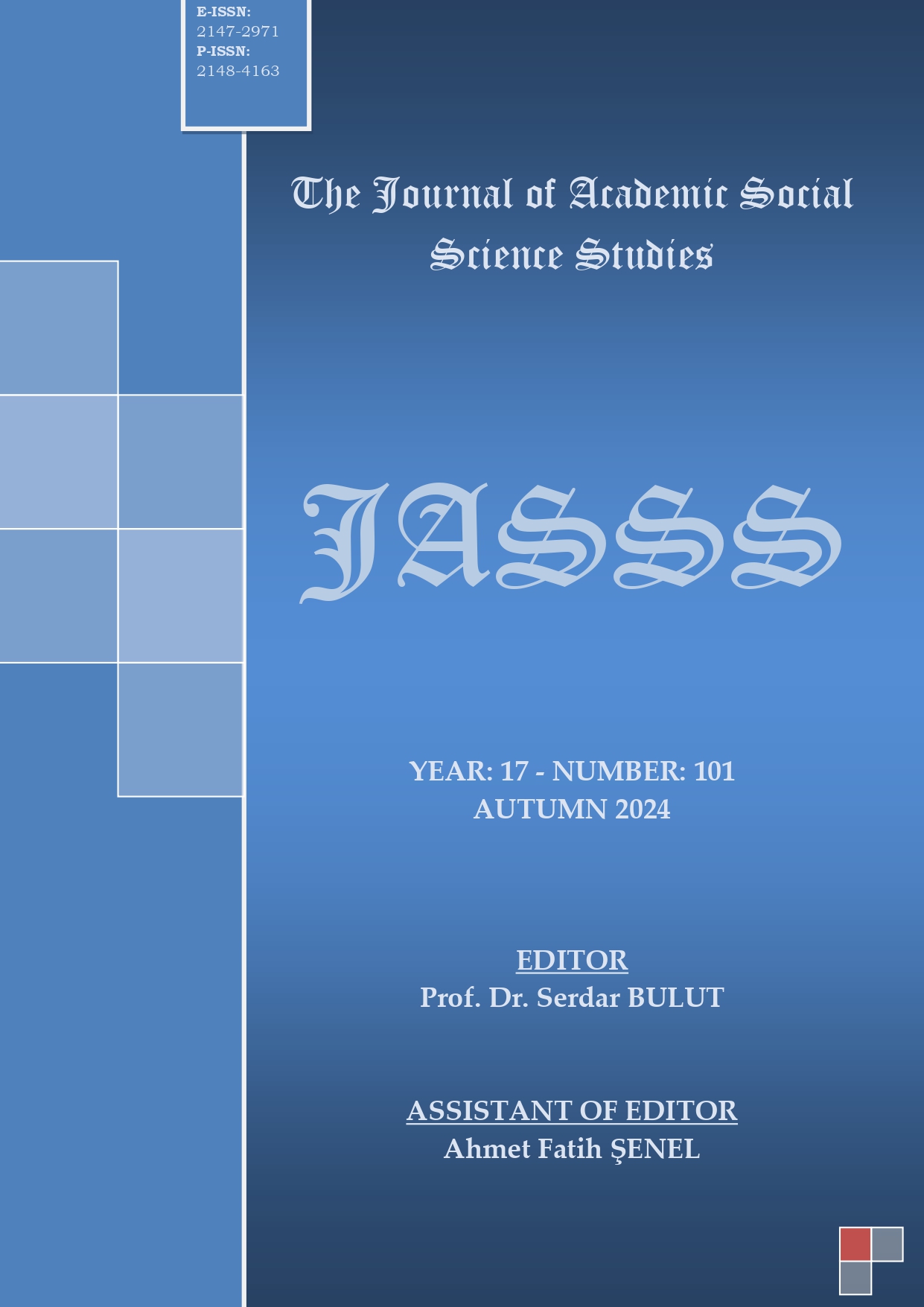Author :
Abstract
Geçmişten günümüze değin Kur’ân’ın tarihselliği-evrenselliği ve Kur’ân kıssalarının mâhiyeti konularında pek çok tartışma cereyan etmiştir. Kur’ân’ın tarihsellik ve evrensellik konularındaki kendine has yapısının zaman zaman istismar edildiği literatürde tartışılagelmiştir. Aralarında Rudi Paret’in de bulunduğu bazı oryantalistler, Kur’ân hakkında çeşitli iddialarda bulunmuştur. Örneğin Paret, Kur’ân’da yer alan mesajların tarihte kaldığı, bugüne hitap etmediği ve evrensel ilkelere sahip olmadığı gibi çeşitli iddialar ileri sürmektedir. Bu makale, bu ve benzer iddiaları Yusûf Kıssası özelinde tetkik etmeyi amaçlamaktadır. Makalede öncelikle konunun temelini oluşturan birtakım kavramlar açıklanmaktadır. Bunlardan bazıları, kıssa ve hikâye, tarihsellik ve evrensellik, form ve normdur. Makalenin konusu, ilgili meseleleri iki açıdan ele almayı gerekli kılmaktadır: Teorik ve pratik. İki boyutlu bu yaklaşımımızın teorik bölümünde, Kur’ân’ın mesajlarından evrensel ilkelere ulaşılabilmesi için gerekli olan argümanlar ele alınmaktadır. Pratik bölümdeyse söz konusu argümanlar Yusûf kıssası özelinde somutlaştırılmaktadır. Teorik bölümde, kıssaların tarihselliği ve evrenselliği tartışması, kıssalarda yer alan kavramların genel geçer özelliği incelenmektedir. Yine teorik bölümde, bir kıssada yer alan özel olayların her çağda bütün insanları kuşatıcı özelliği, ayrıntılı başlıklar altında açıklanmaktadır. Bahsi geçen argümanlar, konunun teorik olarak bir zemine oturmasını sağlamaktadır. Teorinin pratiğe dönüştüğü bölümde ise Yusûf kıssası tevhid-şirk, kötülük-iyilik, nefret-sevgi, ihanet-sadâkat, güzellik-çirkinlik, zillet-iffet, kıtlık-tahıl, iftira-itiraf, şehvet-meşakkat, sabır-selamet, rüya-tevil, hayalî-hakikî güzellik, aklanma-tahliye, şahitlik-hukuk başlıkları altında çift yönlü irdelenmektedir. Netice olarak Yusûf kıssasının, tevhid, ahlâk ve hukuk olmak üzere üç ana ilkeyi barındırdığı tespit edilmektedir. Birinci ana ilke olan tevhid, Allah’ın birliğine dayanan en büyük ilkedir ve Allah’a herhangi bir şeyi denk tutma anlamına gelen şirk, hakikate yönelik olarak yapılmış en büyük kötülüktür. Ana ilkelerden ikincisi, çok geniş bir alanı kapsayan güzel ahlâktır. Toplumun çeşitli unsurlarının birbiriyle kaynaşmasının temelini oluşturan güzel ahlâk; kötülüğe iyilikle karşılık vermek, belalara karşı sabretmek, kişiliği kötü arzulara karşı korumak ile örneklendirilir. Üçüncü ana ilke, insan haklarını belirleyen hukuktur. Hukuk ilkesi, özgürlük ve mal gibi amaçsal ve araçsal değerleri korumayı hedefler. Örneğin Hz. Yûsuf’un şahitler önünde aklanması ve alınan depolama tedbiriyle tahılın korunması, bu hedefi gerçekleştiren olaylardır. Araştırmada ulaşılan sonuç, Hz. Yusûf’un örnek yaşantısıyla hem Hz. Muhammed’in hem de tüm inananların izinden gideceği bir karakter olduğudur. Yusûf sûresi, formu itibariyle hikâyedir*, içeriği itibariyle evrensel ilkeleri barındıran bir hüviyete sahiptir.
Keywords
Abstract
Over time, extensive discussions have unfolded regarding the historical and universal aspects of the Qur'an, as well as the nature of its narratives. It has been debated in the literature that the unique structure of the Qur'an concerning historicity and universality is sometimes exploited. Notably, certain Orientalists, including Rudi Paret, have made diverse claims about the Qur'an. Paret, for instance, contends that the messages in the Qur'an are outdated, irrelevant to the present, and lack universal principles. This article aims to scrutinize the aforementioned claims, with a specific focus on the story of Yusuf in the Qur'an, offering diverse perspectives. Foundational concepts of the topic, such as narrative and story, historicity and universality, form, and norm, are elucidated in the initial part of the article. The exploration of relevant issues in the article requires a two-fold perspective: theoretical and practical. In the theoretical section of our approach, arguments necessary for deriving universal principles from the Qur'an's messages are discussed. In the practical section, these arguments are exemplified through the story of Yusuf. The debate on the historicity and universality of narratives is addressed in the theoretical part, examining the general characteristics of the concepts presented in the narratives. Specific events in a narrative, transcending eras and encompassing all people, are detailed under specific headings in the theoretical section. These arguments lay a theoretical foundation for the subject. In the section where theory translates into practice, the story of Yusuf is analyzed from two perspectives under headings such as monotheism-polytheism, evil-good, hatred-love, betrayal-loyalty, beauty-ugliness, humiliation-chastity, famine-grain, accusation-confession, desire-hardship, patience-salvation, dream-interpretation, imaginary-real beauty, acquittal-discharge, testimony-law. The research concludes that the story of Yusuf encapsulates three main principles: monotheism, ethics, and law. Monotheism, the primary principle, is founded on the unity of Allah, and associating anything with Allah (shirk) is considered the greatest transgression against the truth. The second main principle is beautiful ethics, fostering harmony among various societal elements and exemplified by responding to evil with goodness, enduring trials with patience, and safeguarding one's character against negative desires. The third main principle is the law, determining human rights and aiming to protect values like freedom and property. For instance, the acquittal of Prophet Yusuf in the presence of witnesses and the storage measure taken to preserve grain exemplify the realization of this goal. The research outcome indicates that Prophet Yusuf's exemplary life will be followed by both Prophet Muhammad and all believers. The Yusuf Surah takes the form of a story and encompasses universal principles in its content.





